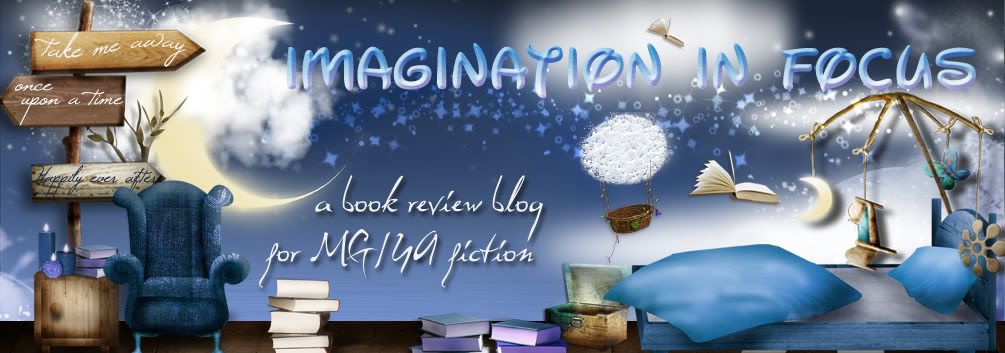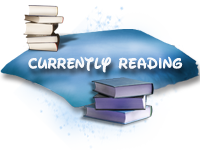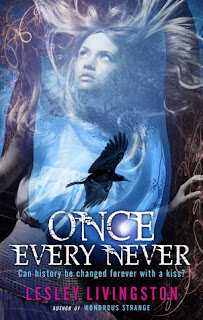2011 wasn't as prolific of a reading year as 2009 & 2010, but in other news, I did graduate from college - finally - and get certified in two subjects! So while I didn't read/blog as much as the other years, I didn't mind so much!
But here are my ten favorite books of the year - in no particular order...
1. Jellicoe Road - Melina Marchetta
Twelve months later, I still can't explain why this book affected me as much as it did. I rarely ever think about characters after I close their book, but Taylor, Jonah, and the others have somehow stuck with me. I may not like Marchetta's fantasy books, but I adore this novel.
My favorite standalone novel EVER, at this point. Plus, my grandma liked it :)
My review of this novel is coming up this week, but I'll quickly say that I found this first installment of the Kronos Chronicles absolutely delightful. Steampunk meets fairytale in this beautifully simple story of a girl in early-modern Prague, a wicked-legit clock, and a mechanical spider.
One of the highlights of my reading year was this extremely well-written and evocative dystopian novel. I also have a very high respect for the author, as well. This story of a futuristic Chicago, divided into virtue-based factions, is an excellent example of how a modern dystopian ought to be. Sure, the violence got a little heavy at times (even for me), but Divergent was ultimately a major hit with me.
One of the first of the YA dystopian genre, Unwind still is "the one to beat," as far as I'm concerned. Despite a lackluster ending (for me at least), Unwind was filled with tension, adventure, and thought-provoking questions and scenarios. I also have a major respect for Shusterman's storytelling ability - for asking questions rather than spooning out answers.
Plus that unwinding scene was C-R-E-E-P-Y!
To be honest, I didn't *like* Ship Breaker so much as I was quietly and respectfully in awe of it. It was a little too dark and bummer-depressing for my cup of tea, but the reason Ship Breaker makes my list is because of Bacigalupi's heartfelt writing style - just enough detail to hook the reader into the action without overpowering the narrative with weighty and pace-slowing descriptions. Plus, this is a good example of a *real* dystopian. This definitely had enough realism in it to seem relevant to me (in a way that other dystopians like The Hunger Games, never was)
This book was just a DELIGHT. Still not sure if it was released in the United States, but wow, I just adore Lesley Livingston. In my opinion, she is one of the best, most talented Young Adult authors today. She took a very obscure part of history - Roman Britain - and made a solid story around it. As usual, she showcased her strong knowledge of history and Celtic mythology.
I cannot wait for the sequel!
With this novel, I was more enamored with the story than the writing, but Queen of Attolia makes the list because it was a fun read but also an inspiring one. Megan's world seemed so effortlessly real, and that's something I'd love to replicate in my own writing. Her worldbuilding is not easily matched and her characters are rich and thoroughly interesting. There are very few characters I've encountered in YA who can match the overall appeal of Eugenides the thief.
Steampunk quickly replaced dystopian as the genre of my fascination. I could not get enough steampunk this summer, and Kady Cross' Girl of the Steel Corset appears to be the most promising steampunk novel/series for Young Adults currently in print. I still stand by the prediction I made in 2011 that steampunk will surpass dystopia as the 'next big thing' in YA lit.
I found Finley Jayne to be a fun protagonist to root for and follow, and I am eagerly anticipated the sequel.

9. Daughter of Smoke and Bone - Laini Taylor
Ahh, I found a real winner with this one. Besides the beginning (too much modernity and a few useless characters) and the ending (didn't like the 'big reveal' and am more than a little apprehensive about the sequel), Daughter of Smoke and Bone was the strongest debut I read this year - along with Divergent. Taylor's worldbuilding was absolutely astonishing, and her characters (except Karou, who still leaves me divided in my opinion of her) were brilliantly crafted. Akiva and Brimstone were easily my two favorite characters of the year (with Eugenides from Queen's Thief solidly in 3rd). Laini is easily one of the most skilled writers I've ever encountered. Her work is both inspiring and intimidating.
10. Chronicles of Prydain (whole series reread) - Lloyd Alexander
I finished the year rereading this beloved series, so I had to include them on this list. One of these days I'm going to hunker down and actually write a review of the Chronicles of Prydain, one of the best young adult series ever written. I've referenced Taran the Assistant Pig-Keeper, the hapless bard Fflewddur Fflam, and the flighty-but-spirited Eilonwy before, but they deserve a review of their own. And they'll get it, one of these days. But these books mean so much to me, and it's because they are the books that, way back in 4th grade, really got me excited about reading. They are the books that got me thinking about creating my own stories, and writing them down. So it's only appropriate that I closed out 2011 with a reread of my favorite series.
--
My reading goal for 2012 is slightly less than last year's - only 50 books. Hopefully it'll be a number that I'll be able to reach. Either way, I'm excited to begin my 3rd year blogging and hope that anyone who's reading this will stick around with me for another great year.
What was your most memorable read of 2011?

























